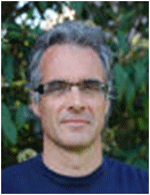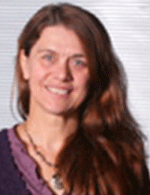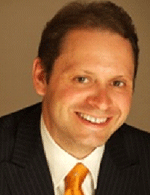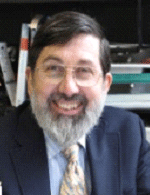APS College of Educational and Developmental Psychologists
2012 Educational and Developmental Psychology Conference
Venue
Rendezvous Hotel Melbourne
328 Flinders Street
Melbourne VIC 3000 Australia
Tel: +61 3 9250 1888
Fax: +61 3 9250 1877
Located in the heart of the city overlooking the Yarra River, Rendezvous Hotel Melbourne is one of the few historic and grand hotels in Australia.
Keynote speakers
 Filip De Fruyt, PhD
Filip De Fruyt, PhD
Department of Developmental, Personality and Social Psychology
Ghent University, Belgium
Professor Filip De Fruyt obtained a Master in Psychology, a Master in Biomedical Sciences and a PhD in Psychology. He is currently a professor in Differential Psychology and Personality Assessment at Ghent University in Belgium. His research spans a broad domain including adaptive and maladaptive traits, their structure and development, cross-cultural manifestations of personality, and applied personality psychology. He has (co-)authored over 100 papers and chapters in a broad range of leading international academic journals. In this presentation, he will review recent research on personality differences in children and adolescents, including variable-oriented and person-centered perspectives. Research on general and maladaptive trait models will be discussed including their connection. It will be argued that the contribution of personality to an adequate understanding of children and adolescents is crucial. Filip will consider the applications of this work in the educational and developmental psychologist’s professional practice.
 Prof Karola Dillenburger
Prof Karola Dillenburger
Centre for Behaviour Analysis
Queen’s University Belfast, Northern Ireland
Prof Karola Dillenburger has worked extensively in social care and therapeutic settings in Germany before moving to Northern Ireland. She is the Director of the Centre for Behaviour Analysis in the School of Education at QUB. She has published widely, including 5 books, 5 multim edia training resources, and over 50 academic papers. Her research interests include the application of Behaviour Analysis in areas such as trauma, bereavement and loss, autism spectrum disorder, and parent training. Applied Behaviour Analysis is the scientific basis for well established, evidence-based interventions for individuals diagnosed with Autism Spectrum Disorders and many other conditions. The US Federal government considers the application of Applied Behaviour Analysis (ABA) to be not only educationally valuable, but medically necessary. This is not the case in other parts of the world where the research evidence favouring ABA-based methods is not recognised and an eclectic approach is recommended. This presentation will explore these issues and illustrate the effectiveness of ABA-based interventions with a range of research methodologies.
 Dr Mathew White
Dr Mathew White
Director of Wellbeing and Positive Education
St Peter’s College, Adelaide.
Dr Mathew White (PhD) is Director of Wellbeing and Positive Education at St Peter’s College, Adelaide, one of Australia's leading Independent boys’ schools. Prior to his current role Mathew was Director of Training and Leadership at Teach For Australia, a social enterprise of the Australian Government established to confront educational disadvantage. Mathew was the first Head of Positive Education at Geelong Grammar School. He is the author of 2 book chapters, 17 peer-reviewed articles, 19 conference presentations and 9 symposia panels on positive psychology and leadership and has collaborated with leaders in the field of organisational change and positive psychology. Mathew has experience advising corporate, non-profit, independent, government and catholic education systems on the application of positive psychology and wellbeing theory. He is a member of the advisory panel for Dr Martin Seligman's role as Adelaide's Thinker in Residence (2012-13), Positive Psychology Centre at the University of Melbourne. Dr White will present on leading school change through positive education and a focus on wellbeing.
Workshops
Workshop 1 & 4: Assessing personality in children and adolescents
Professor Filip De Fruyt
The workshop will focus on the assessment of personality differences among children and adolescents, introducing different instruments and methods useful for school psychologists. In the first part of the workshop, case-work will be discussed to illustrate the contribution of personality assessment to the process of diagnostics and therapy choice, compliance and course. The second part of the workshop will be interactive, and participants will be invited to discuss case-work in small groups and explore how personality assessment can be integrated in their work.
Workshop 2 & 5: Task analysis and fine-tuning observational skills
Prof Karola Dillenburger
Task analysis and behavioural observation form the basis of many skills-based interventions. This workshop will provide task analysis and observational skills training. The workshop will be interactive based on multimedia presentations and practical exercises. It will be suitable for psychologists from varied background from beginners to those with experience in the area.
Workshop 3: Introduction to the Woodcock Johnson III tests of cognitive abilities and tests of achievement - Australian Adaptation (WJ III)
 Mr Walter Howe
Mr Walter Howe
This workshop will give a brief overview of the history of both cognitive assessment and cognitive theories to the present day, including “beyond CHC” (Cattell-Horn-Carroll). This will include a more detailed outline of CHC Theory and the WJ III. Recent research regarding the relationships of cognitive processes to curriculum areas of reading and mathematics will be introduced and this information will be used to discuss methods of diagnosing a range of specific learning disabilities, such as dyslexia, dyscalculia and language disorders. Case studies will be used to illustrate the process of making diagnoses and planning intervention.
Walter Howe is an Educational and Developmental Psychologist who has worked as a teacher, school counselor and test publisher. He has managed Australian standardisation studies for the WISC III, the Woodcock Johnson III Tests of Cognitive Abilities and Tests of Achievement (WJ III) and the York Assessment of Reading for Comprehension (YARC). He is the Director of Psychological Assessments Australia (PAA), which distributes a wide variety of assessment products.
Workshop 6: Advances in the assessment of reading, including the use of the New York Assessment of Reading for Comprehension - Australian Edition (YARC)
Mr Walter Howe
This workshop will outline research based theoretical views of reading as well as additional research on the relationship between cognitive processes and reading. This information will then be applied assist in the diagnosis and understand of a variety of reading problems. Methods of assessing the various processes and factors outlined by research and theory will be discussed, including the recently published York Assessment of Reading for Comprehension – Australian Edition (YARC) and the Woodcock Johnson Tests of Achievement – Australian Adaption (WJ III) and how to use assessment information to formulate diagnosis and plan intervention. Case studies will be used to illustrate this process and intervention strategies will also be discussed.
Conference Program
Friday 16 November
|
8.30-8.55 |
REGISTRATION |
|
8.55 |
Welcome |
|
9.00-10.00am |
Keynote address: Prof Filip De Fruyt |
|
10.10 – 11.10am |
Individual research papers |
|
11.10-11.40am |
MORNING TEA |
|
11.45am-12.45pm |
Keynote address: Prof Karola.Dillenburger |
|
12.45-1.30pm |
LUNCH |
|
1.30-3.00pm |
Individual research papers |
|
3.00-3.30pm |
AFTERNOON TEA |
|
3.30-4.30pm |
Keynote address: Dr Mathew White |
(Catering covered by registration fee including Friday evening drinks and canapés)
Half-Day Workshop program: Saturday 17 November
Participants will be able to attend 2 of the half day hour workshops.
| Workshop |
Presenter |
Topic |
|
Registration: 8.45am |
||
|
Morning – 9.00am-12.30pm |
||
|
1 |
Prof Filip De Fruyt |
Assessing personality in children and adolescents |
|
2 |
Prof Karola Dillenburger |
Task analysis and fine-tuning observational skills |
|
3 |
Mr Walter Howe |
Woodcock Johnson III Tests |
|
Afternoon - 1.30pm-5.00pm |
||
|
4 |
Prof Filip De Fruyt |
Assessing personality in children and adolescents |
|
5 |
Prof Karola Dillenburger |
Task analysis and fine-tuning observational skills |
|
6 |
Mr Walter Howe |
Reading assessment - YARC |
APS Endorsed CPD [CEDP] Conference: 6 CPD hours Workshop: 3 CPD hours per workshop
Business buffet Lunch 12.30-1.30pm
The College of Educational and Developmental Psychologists Annual General Meeting will be held during the lunch break. All CEDP members are welcome to attend.
Registration
Early bird registration closes 16 October 2012.
Register before the 16 October 2012 and go in the draw to win a $250 Tiffany & Co. Voucher! The winner will be notified after the 16/10/12.
Conference delegate registration:
Workshop only registration:
|
Conference |
Early Bird |
Standard |
|
CEDP member |
$240 |
$290 |
|
University Field supervisor |
$216 |
$250 |
|
APS member |
$270 |
$320 |
|
Non APS member |
$340 |
$410 |
|
APS Student |
$100 |
$120 |
|
Non APS Student/Concession |
$160 |
$190 |
|
Workshop program |
Conference Delegate |
Non Conference Delegate |
|
CEDP member |
$260 |
$310 |
|
APS member |
$310 |
$370 |
|
Non APS member |
$360 |
$430 |
|
APS Student |
$85 |
$105 |
|
Non APS Student/Concession |
$185 |
$220 |
|
A tax invoice will be issued. |
||
Contact
Program enquiries:
Email: [email protected]
Registration queries:
APS events team email [email protected]



